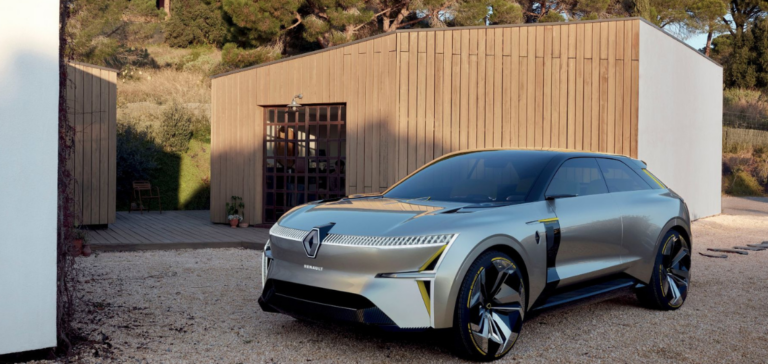Renault has made a groundbreaking announcement that could change the face of the electric vehicle market. Last Wednesday, the company revealed plans for the launch of a new electric car, tentatively dubbed “Legend”. Renault has set the starting price of this model at less than 20,000 euros, excluding subsidies, as a strategic response to the growing Chinese and American competition in the sector.
“Legend: An affordable electric car
Designed primarily for urban use, the “Legend” stands out for its compactness and European manufacturing. This new model will not be available until after 2025, according to statements made by Renault at the preliminary announcement of its new electric vehicle subsidiary, Ampere.
Outstanding environmental performance
In addition to its affordability, Renault also offers an innovative leasing package. At less than 100 euros a month, this option is part of the “social leasing” scheme initiated by the French government, making electric cars more accessible to the general public. The “Legend” also stands out for its environmental performance. With a fuel consumption of just 10 kWh/100 km, it promises a significant reduction in CO2 emissions, estimated at 75% compared with current internal combustion vehicles over its entire life cycle.
Ampere’s Electrical Strategy
Renault’s commitment to electric vehicles doesn’t stop there. Ampere, the new subsidiary, plans to launch seven models by 2031, including electric versions of the popular Mégane, Scenic, R5, and R4, plus the “Legend” and two as yet undisclosed models. Renault is committed to aligning the prices of mid-segment models, such as the Mégane and Scenic, with those of combustion-powered vehicles by 2027/2028, while preserving its profit margins.
Renault’s Financial Objectives and Growth
This ambitious strategy is underpinned by high financial targets. Ampere is aiming for sales of €10 billion in 2025, a significant leap on the €46 billion generated by the Renault group in 2022. By 2031, the aim is to increase this figure to 25 billion euros with these 7 vehicles, translating into an annual growth rate of over 30% between 2023 and 2031.
“What we want is to democratize electric vehicles in Europe”.
explained Thierry Piéton, Renault’s Chief Financial Officer, at a press conference. The company plans to cut costs significantly in order to reduce prices while improving margins. This strategy is reinforced by the postponement of Ampere’s IPO until the first half of 2024, pending more favorable market conditions. Renault assures us that Ampere, with its lean and profitable structure, will be a major player on the market. The subsidiary, which employs over 11,000 people, a third of them engineers, focuses on the design, development and manufacture of vehicles under the Renault brand in France. This approach is part of the company’s wider strategy to establish itself as a leader in electric mobility.
Renault, with its “Legend” electric car and its new subsidiary Ampere, is positioning itself as an innovator in the field of electric vehicles. By offering affordable, environmentally-friendly options, Renault aims not only to compete with the international giants, but also to democratize access to electric vehicles.






















